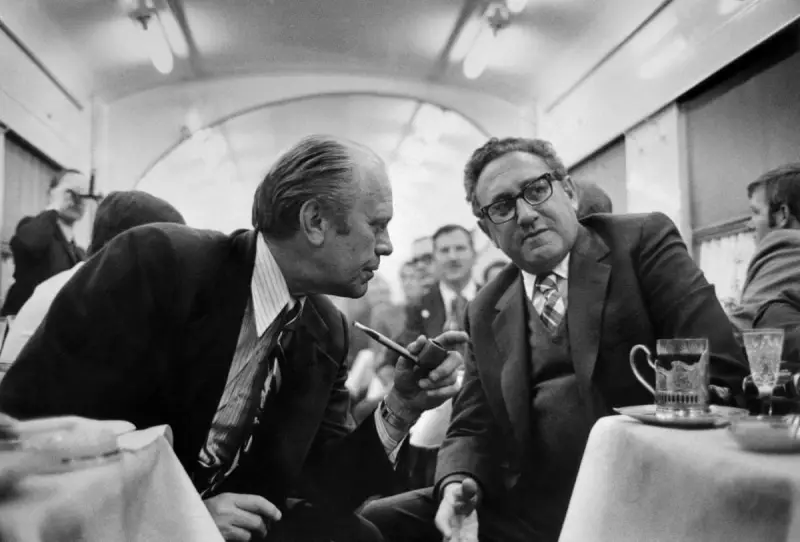
White House Attempt to Suppress Landmark CIA Report
Previously classified documents have exposed a determined effort by the Gerald Ford administration to block the publication of a groundbreaking Senate report that revealed the CIA's involvement in assassination plots against foreign leaders. The National Security Archive released these papers to commemorate the 50th anniversary of the Church Committee report's publication, drawing striking parallels to contemporary speculation about Donald Trump's alleged authorisation of assassination attempts against Venezuela's president, Nicolás Maduro.
Ford Administration's Secret Opposition
Among the documents made public is a "secret/sensitive" options paper addressed to Dick Cheney, who served as Ford's chief of staff before becoming vice-president. This memorandum explicitly recommended opposing the publication of Democrat senator Frank Church's investigation. The records show President Ford accepting this recommendation, arguing the Senate select committee should "assume responsibility for damage to the nation" that would supposedly result from making the findings public.
The White House believed strong opposition might pressure the committee to revise what they considered the report's most damaging sections. The documents also reveal that both CIA director William Colby and secretary of state Henry Kissinger expressed intense hostility toward Church's investigations.
In a February 1975 conversation about the committee's probe into domestic spying activities, Kissinger voiced fears that the investigation "could be as damaging to the intelligence community as McCarthy was to the foreign service." He warned that the result could be "the drying up of the imaginations of the people on which we depend."
The Church Committee's Explosive Findings
Despite White House resistance, the Church Committee published its first report, Alleged Assassination Plots Involving Foreign Leaders, on 20 November 1975. The 285-page document exposed shocking details about CIA attempts to kill Cuban leader Fidel Castro and the agency's involvement in the deaths of Congo's first post-colonial prime minister Patrice Lumumba and Chile's armed forces commander-in-chief General Rene Schneider.
The report unequivocally stated: "The evidence establishes that the United States was implicated in several assassination plots." It concluded that "assassination is incompatible with American principles, international order, and morality" and should be rejected as an instrument of foreign policy.
The public outrage provoked by these revelations led directly to policy change. The following year, President Ford signed the first of several executive orders explicitly prohibiting the CIA and other US forces from attempting to assassinate foreign leaders outside of war situations.
Modern Parallels and Evolving Standards
The release of these historical documents comes amid intense speculation about contemporary US policy. Donald Trump has pointedly refused to confirm or deny whether he authorised the CIA to assassinate Venezuela's president, though he remarked in a recent interview that "his days are numbered."
According to the New York Times, the justice department's office of legal counsel has been tasked with drafting an opinion that could legally justify any assassination of Maduro. This effort coincides with the Trump administration designating the Cartel De Los Soles, which they claim Maduro leads, as a terrorist organisation effective 24 November.
Peter Kornbluh, senior analyst with the National Security Archive, emphasised the urgency of revisiting the Church report's historical significance. "Fifty years after the scandal of the revelations of the Church committee report, we've come a long way in the wrong direction where we have US presidents who now seem to feel they can openly discuss assassination plots against foreign leaders," he stated.
Kornbluh noted that the 9/11 attacks fundamentally altered public perception about the acceptability of assassinations, at least regarding terrorists. "If someone was designated a terrorist, they could then legitimately be taken out, and that is why you today see the Trump administration doing linguistic and legalistic somersaults," he observed.
Fulton Armstrong, a former CIA analyst for Latin America, lamented the erosion of principles established by Church's report. "Frank Church was the man who on the Hill did more to rescue CIA from itself and demand transparency and accountability," Armstrong said. "The ethics that Church in his sometimes clumsy ways, introduced into CIA along with the levels of accountability and oversight – those things have been reversed. And they are desperately needed."
The pressure on Maduro's government has intensified dramatically, with Washington offering a $50 million bounty for his arrest. Since early September, at least 83 people have been killed in 21 US drone strikes against alleged drug trafficking boats in the Caribbean and Pacific.





